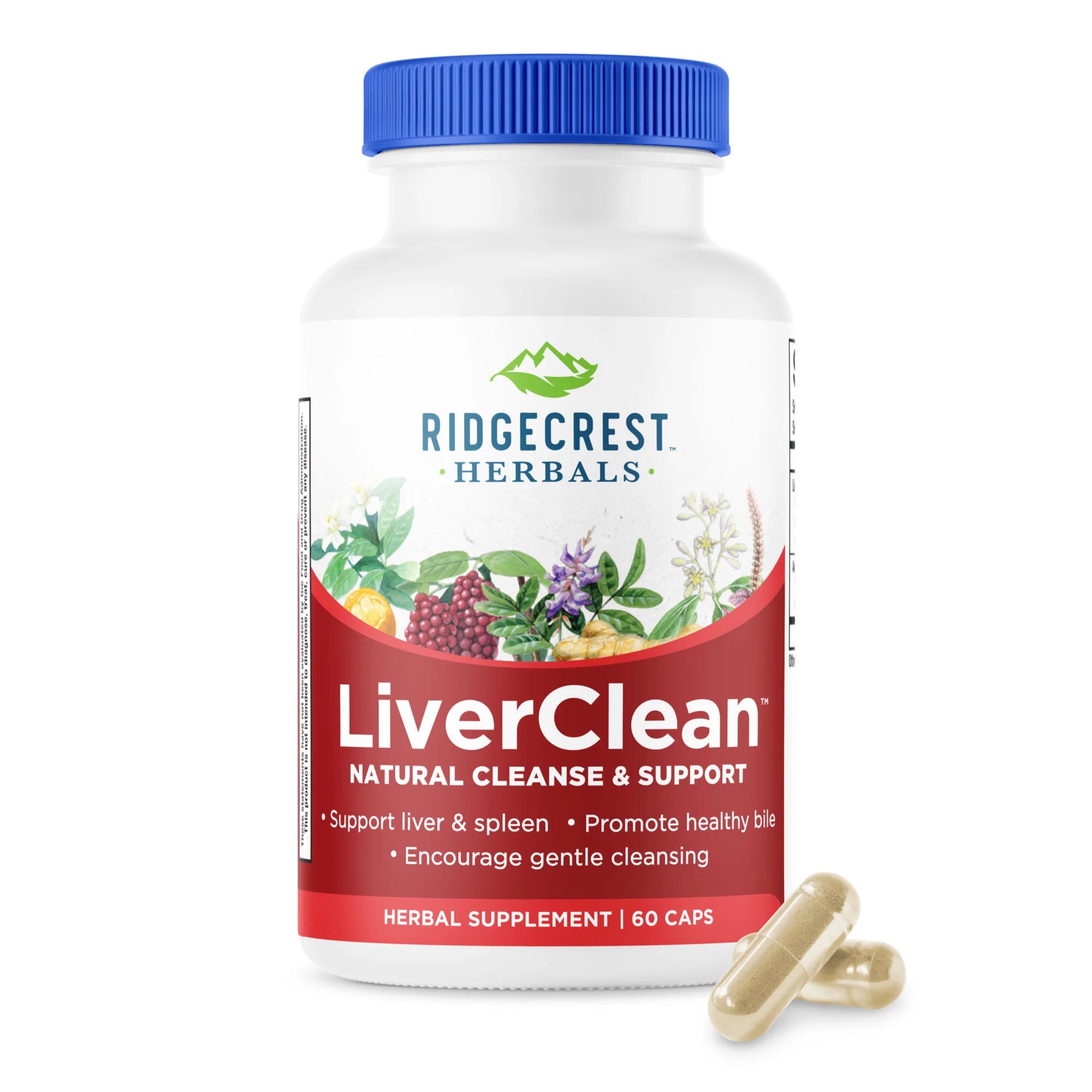Top Lifestyle Habits for a Healthy Liver: What You Need to Know
Your liver is a powerhouse, no exaggeration. Tucked beneath your ribcage and about the size of a football, it’s constantly working behind the scenes to keep your body balanced and functioning at its best. This vital organ filters out toxins, metabolizes everything you eat and drink, produces bile to support digestion, balances blood sugar, regulates cholesterol, and stores essential nutrients like iron and vitamins.
In fact, the liver is responsible for over 500 functions. That’s right, 500! It also holds about 13% of your body’s total blood supply at any given moment. It's the ultimate multitasker.
But like any high-performing system, it needs the right support. While your liver is incredibly resilient and even capable of regenerating tissue, it’s not invincible. Poor diet, chronic stress, environmental toxins, alcohol, and a sedentary lifestyle can all place extra strain on this already hard-working organ.
The good news? You don’t need a total life overhaul to give your liver a helping hand. With a few intentional lifestyle habits and daily choices, you can naturally support your liver’s ability to cleanse, metabolize, and thrive, all while boosting your overall energy, digestion, and vitality.
Let’s explore the simple but powerful ways you can love your liver every day.
Understand Your Liver’s Role & Structure
Key facts: It’s the largest solid organ (about 3–3.5 lb, or the size of a football), protected by the ribcage.
Anatomy matters: The liver is composed of four sections, known as lobes, and is divided into tiny functional units called lobules, which function like miniature workstations for filtration, metabolism, and detoxification. It’s connected to your digestive system by a network of bile ducts, which carry bile into the small intestine to help break down fats. At the same time, it receives nutrient-rich blood from the digestive tract and oxygenated blood from the hepatic artery, keeping it fueled and ready to multitask.
Liver Core functions:
- Filtering blood from the digestive tract before it passes to the rest of the body
- Removing toxins, drugs, and metabolic waste to keep your system clean
- Producing bile, which helps digest and absorb fats and fat-soluble vitamins
- Storing vitamins and minerals such as A, D, E, K, B12, iron, and copper for future use
- Regulating blood sugar by storing and releasing glucose as needed
- Metabolizing carbohydrates, fats, and proteins to convert them into energy or building blocks
- Producing essential proteins like albumin (which maintains blood volume) and clotting factors
- Supporting immune function by filtering bacteria and pathogens and producing immune factors
- Breaking down old or damaged red blood cells and recycling their components
- Detoxifying ammonia by converting it into urea for safe elimination
- Regulating cholesterol levels and producing cholesterol and special fats called lipoproteins
- Helping regulate hormones by breaking down excess or inactive hormones
1. Eat a Nutrient-Dense Diet
Fill your plate with whole, colorful foods rich in vitamins, minerals, antioxidants, and fiber. Vegetables like broccoli, Brussels sprouts, and leafy greens help stimulate the liver's detoxification pathways. Fruits such as citrus, berries, and especially vitamin C-rich foods (think oranges, kiwi, strawberries) are crucial because vitamin C acts as a powerful antioxidant that protects liver cells from damage and supports the regeneration process.
Healthy proteins and fats are equally important. Choose lean meats, fish, nuts, seeds, and olive oil; these provide building blocks your liver needs without adding extra stress.
2. Stay Hydrated — Water and Electrolytes Matter
Water is absolutely essential for flushing toxins through your liver and kidneys, helping your body naturally detoxify every day. Staying well-hydrated supports the liver’s complex chemical processes, keeps blood flowing smoothly, and ensures waste products are efficiently removed.
A good rule of thumb is to drink enough water so that your urine is a pale, straw-like color, a simple sign you’re well-hydrated. But hydration isn’t just about water alone. Electrolytes like potassium, magnesium, sodium, and calcium play a crucial role in maintaining your body’s fluid balance and supporting cellular functions, including those in your liver.
Adding fresh lemon or cucumber slices to your water not only makes it more enjoyable but also provides a gentle boost of vitamins and minerals that can support your liver. For example, lemons add vitamin C and help stimulate bile production, which aids in fat digestion.
For extra electrolyte support, consider natural sources like coconut water, watermelon, or a pinch of sea salt in your water. These help replenish minerals lost through sweat and daily activity, keeping your liver and entire system working optimally.
Remember, consistent hydration combined with balanced electrolytes fuels your liver’s ability to cleanse, regenerate, and keep your body thriving.
3. Find an Exercise You Enjoy
Physical activity plays a crucial role in supporting healthy circulation and metabolism, two key factors that help your liver function optimally. When you move regularly, your body improves blood flow, which helps deliver oxygen and nutrients to liver cells while aiding in the removal of toxins.
You don’t need intense workouts or hours at the gym to make a difference. Simple, enjoyable activities like walking, yoga, swimming, or dancing can all keep your liver healthy.
Exercise also helps regulate blood sugar and manage inflammation, both of which lighten the liver’s workload. Additionally, regular physical activity supports overall well-being, uplifts your mood, and can help reduce stress, another crucial factor in liver health.
The key is consistency and enjoyment. Find an activity that feels good to you, and aim to do it most days of the week. Even small amounts of daily movement add up to big benefits for your liver and your whole body.
4. Reduce Toxin Exposure
Your liver works tirelessly to process and eliminate environmental toxins that enter your body every day. These can come from various sources, including harsh chemicals found in common cleaning products, personal care items such as shampoos and lotions, pesticides on conventionally grown produce, and even air pollution.
Constant exposure to these substances forces your liver to work overtime. To give your liver a break, aim to minimize your exposure to harmful chemicals whenever possible.
Start by choosing natural, non-toxic alternatives for household cleaners; many effective options use simple ingredients like vinegar, baking soda, and essential oils. When it comes to personal care, look for products free of parabens, phthalates, and synthetic fragrances. Washing fruits and vegetables thoroughly or opting for organic produce can help reduce pesticide intake.
Even small changes, such as using reusable water bottles instead of plastic or improving indoor air quality with houseplants or air purifiers, can significantly reduce your overall toxin load.
By consciously reducing your exposure, you support your liver’s vital detoxification work and help your whole body stay healthier.
5. Limit Alcohol, Caffeine, Processed Sugar, and Nicotine
Your liver plays a crucial role in breaking down and removing substances that can be harmful in excess. While alcohol is widely recognized as a major liver stressor because the liver directly processes it, it’s not the only culprit.
Consuming too much caffeine, especially from energy drinks or excessive coffee, can overwork your liver’s detox pathways and disrupt your body’s natural rhythms. Processed sugars, found in sodas, sweets, and many packaged foods, can promote inflammation and contribute to fat accumulation in liver cells, increasing the risk of non-alcoholic fatty liver disease.
Nicotine from smoking or vaping narrows blood vessels and reduces oxygen supply, making it harder for your liver to perform its functions efficiently. It also introduces toxic chemicals that the liver must filter, increasing its workload.
By moderating your intake of these substances or avoiding them altogether, you’re giving your liver a chance to rest, repair, and function optimally. Making mindful choices here can significantly support healthy metabolism and protect your liver’s long-term health.
6. Get Plenty of Sleep
Sleep isn’t just about rest; it’s a critical time when your liver springs into action to perform many essential detoxification and repair processes. During deep, restorative sleep, your body ramps up production of enzymes and antioxidants that help break down and eliminate toxins, repair damaged liver cells, and restore balance to your metabolism.
Without enough quality sleep, these vital functions slow down or become less efficient, putting additional strain on your liver and allowing harmful substances to build up in your body. Over time, chronic sleep deprivation can contribute to inflammation, impaired glucose metabolism, and even increase the risk of liver diseases such as fatty liver or fibrosis.
Experts recommend aiming for 7 to 9 hours of uninterrupted sleep each night to give your liver and your entire body the time it needs to heal and regenerate. Establishing a regular sleep schedule, creating a calming bedtime routine, and minimizing exposure to screens and artificial light before bed can all help improve sleep quality.
Think of sleep as your liver’s nightly reset button; prioritizing it is one of the simplest and most powerful ways to support long-term liver health and overall wellness.
7. Get Plenty of Fiber
Fiber supports healthy digestion and plays a crucial role in helping the liver eliminate toxins by promoting regular bowel movements, which enable the efficient expulsion of waste and harmful substances through the digestive tract. Excellent sources of fiber include whole grains, fruits, vegetables, nuts, and seeds.
8. Minimize the Use of Plastic
Certain chemicals in plastics, like BPA and phthalates, are known to interfere with liver function and hormone regulation. Reduce plastic use by opting for glass or stainless steel containers, especially for food and beverages.
9. Manage Stress
Chronic stress triggers hormonal imbalances, especially elevated cortisol levels, which can place an extra burden on your liver by disrupting its ability to process toxins and regulate metabolism effectively. When stress becomes constant, it can lead to inflammation and impair liver function over time. To protect your liver and support overall health, it’s important to incorporate stress-reducing practices into your daily routine. Techniques such as meditation, deep breathing exercises, journaling, spending time in nature, or even gentle movement like yoga can help calm your nervous system, lower cortisol levels, and restore balance. Making time for these mindful activities not only supports your liver but also enhances mental clarity, emotional resilience, and overall well-being.
10. Choose Healthy Fats
Healthy fats from sources such as olive oil, avocado, nuts, and fatty fish play a vital role in supporting your liver’s health by helping to regulate the body’s inflammation response and maintaining the integrity of cell membranes. These beneficial fats provide essential fatty acids and antioxidants that help protect liver cells from damage and promote efficient cellular communication. Incorporating these fats into your diet can help support the inflammatory response, support detoxification processes, and support overall metabolic function. On the other hand, it’s important to avoid trans fats, often found in processed and fried foods, and to limit excessive saturated fats. Choosing healthy fats is a simple yet powerful way to nourish your liver and support its many essential functions.
Why Vitamin C Is Essential for Liver Health
Vitamin C is an important antioxidant nutrient that helps support the health and integrity of liver cells by protecting them from oxidative stress caused by everyday environmental factors. It also contributes to the production and recycling of glutathione, a key compound involved in the body's natural detoxification processes. Including vitamin C-rich foods such as citrus fruits, berries, kiwi, and leafy greens in your diet can help maintain liver function and promote overall wellness.
Herbal and Supplemental Support for Liver Wellness
Alongside healthy habits such as nutrition, movement, hydration, and rest, incorporating specific herbs and dietary supplements into your lifestyle can provide additional support for your liver’s natural processes. These supplements may provide antioxidants, support healthy digestion, and help maintain the liver’s ability to handle daily metabolic demands.
Commonly Used Herbs to Support Liver Health
- Milk Thistle (Silybum marianum): One of the most researched herbs for liver support, milk thistle contains silymarin, a compound that helps support liver cell integrity and natural detoxification processes.
- Dandelion Root (Taraxacum officinale): Traditionally used to support bile production and digestive health, helping the body process and eliminate waste more effectively.
- Turmeric (Curcuma longa): A culinary and medicinal herb with curcumin, a compound that supports the body’s natural inflammatory response and provides antioxidant support.
- Artichoke Leaf (Cynara scolymus): Used to support healthy fat digestion and bile flow, which are essential components of liver-related digestive activity.
- Schisandra (Schisandra chinensis): An adaptogenic berry used in Traditional Chinese Medicine to support the body’s response to stress and maintain healthy liver enzyme activity.
- Burdock Root (Arctium lappa): Known for its use in supporting elimination pathways and promoting healthy skin and liver function.
- Ginger (Zingiber officinale): Warming and digestive, ginger supports healthy circulation, digestive comfort, and antioxidant defenses.
-
Licorice Root (Glycyrrhiza glabra): Contains flavonoids and natural compounds that support antioxidant activity and the body’s response to oxidative stress.
Nutrients That Help Support Liver Health
- Choline: Supports fat metabolism and helps maintain normal liver function.
- N-Acetyl Cysteine (NAC): A building block for glutathione, supporting antioxidant defense and natural detoxification.
- Glutathione: A key antioxidant that helps protect liver cells and supports the body's cleansing processes.
- Zinc: Contributes to antioxidant enzyme function and supports immune system activity.
- Selenium: A trace mineral essential for antioxidant defense and cellular health.
- L-Glutamine: Supports gut barrier function and immune health, indirectly supporting liver wellness.
- Vitamin C: A powerful antioxidant that helps protect liver cells from oxidative stress and supports the production and recycling of glutathione, a key compound in the body’s natural detox processes.
When paired with a well-rounded lifestyle, these herbs and nutrients can help maintain the liver’s ability to function efficiently, support digestion, and promote overall wellness. As always, consult a qualified healthcare professional before starting any new herbal or supplement regimen, especially if you're pregnant, nursing, on medications, or managing a health condition.
Final Thoughts
Supporting your liver is one of the best investments you can make in your overall health. With a nutrient-rich diet, proper hydration, regular movement, and mindful choices around toxins, sleep, and stress, you’re giving your liver the tools it needs to thrive, helping your entire body function better every day.





Leave a comment
All comments are moderated before being published.
This site is protected by hCaptcha and the hCaptcha Privacy Policy and Terms of Service apply.